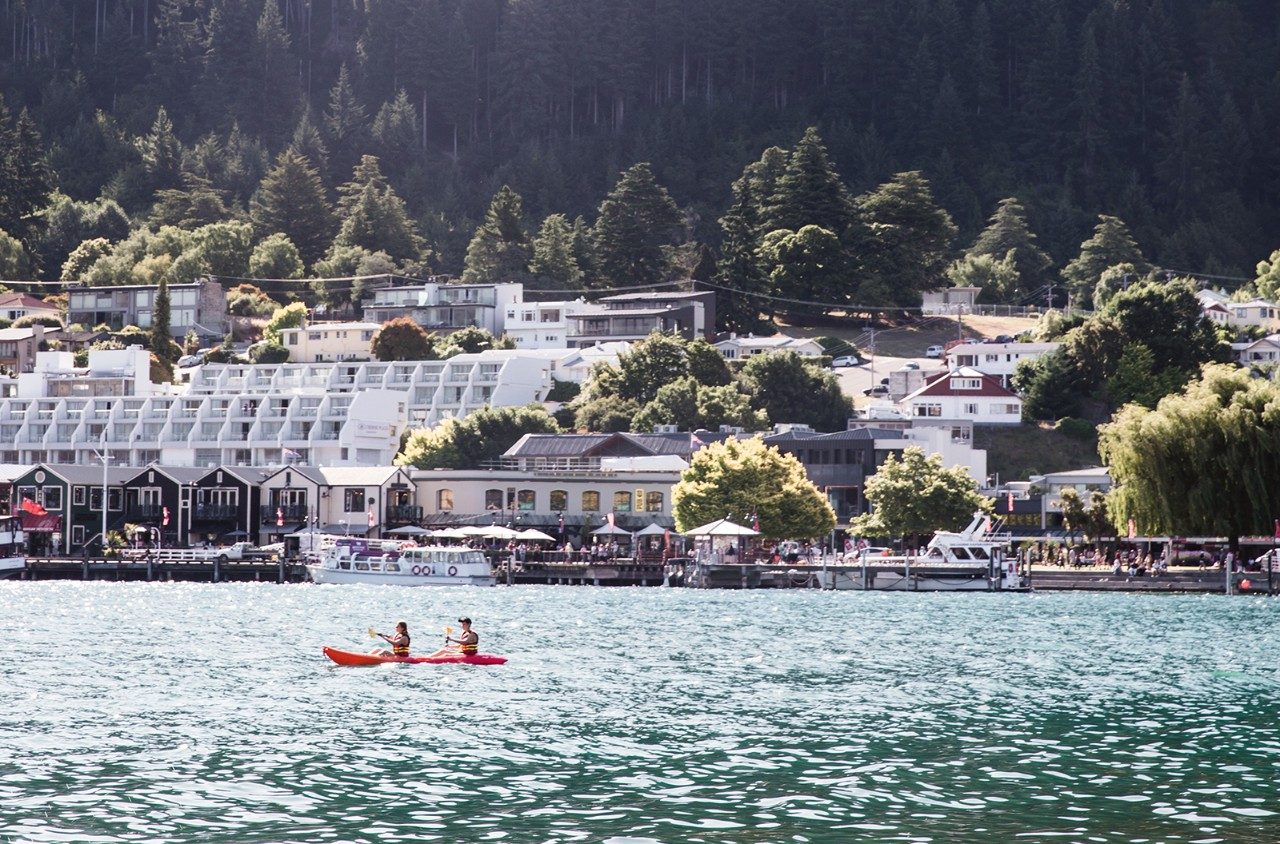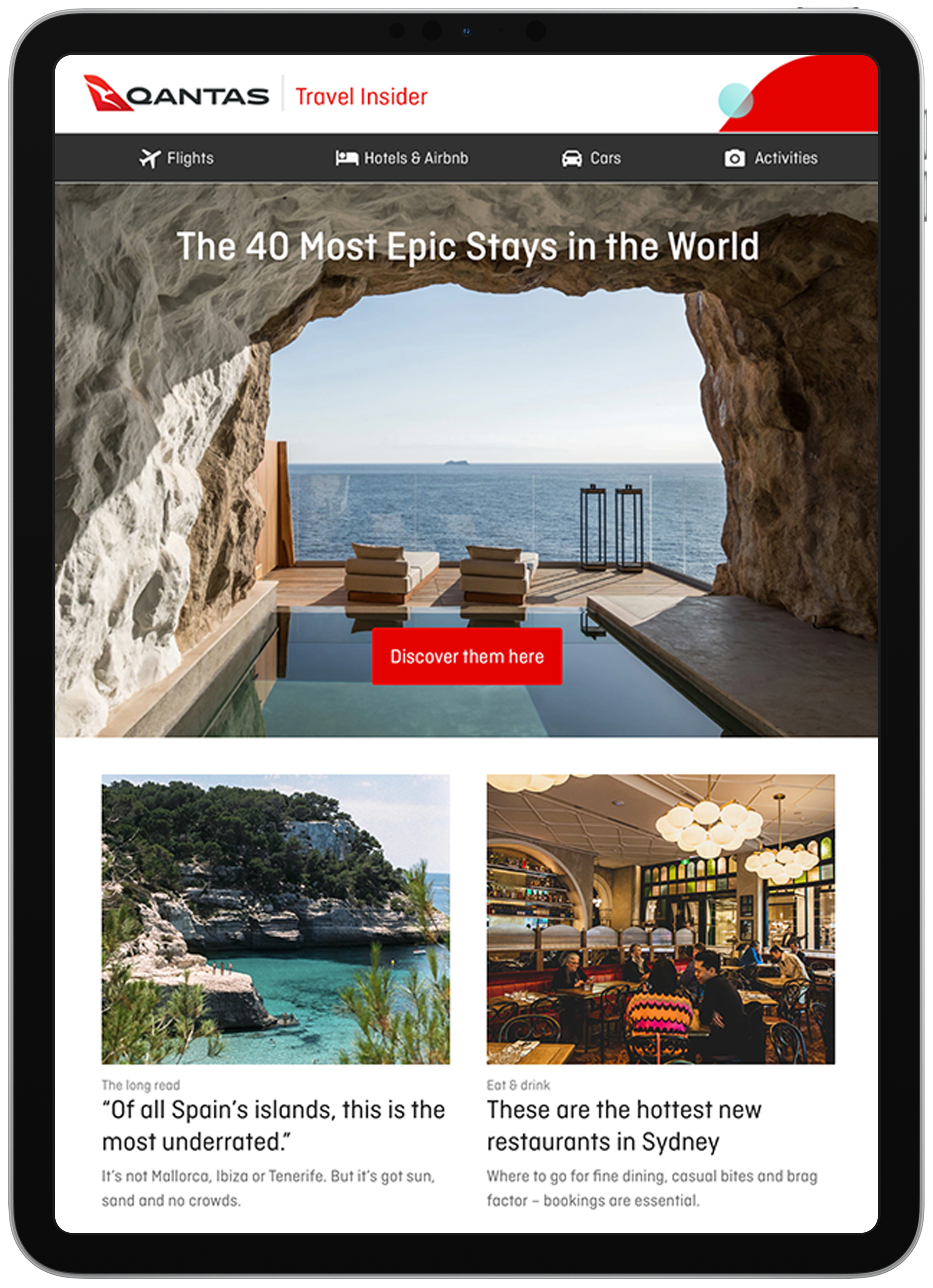How the Adventure Capital of New Zealand Is Leading the Innovation Game

Already one of the most picturesque places in New Zealand, Queenstown is now vying for the most innovative.
It’s 2030 and you’ve just flown into Queenstown, the adventure capital of New Zealand. You travel to the centre of town via an electric gondola. The hotel you check into is a zero-waste property that runs on solar energy. And your transport while you’re here? An autonomous vehicle or, if you’re on the water, an electric hydro ferry. It sounds ridiculously futuristic but Mat Woods is betting his career on it. “It just comes down to how fast we can make it happen,” says the CEO of Destination Queenstown, who has announced that the Queenstown Lakes region, which also includes Wānaka, will be a carbon-zero visitor economy by 2030, the first tourism destination in the world to set such a lofty goal. “This is a brave, innovative industry and community. They want to do something good and they want to be a part of it.”
With three million visitors a year – and just 50,000 locals – tourism is the “main game”, says Jo Finnigan, general manager of Hotel St Moritz. She points to Lake Wakatipu, shimmering before her. “This is what we’re protecting. We’re all passionate about our place.” Local tourism businesses are already trialling different initiatives. Ngāi Tahu Tourism, which is owned by the Māori people of Te Waipounamu (the South Island), has converted one of the petrolrun boats it uses on the Shotover Jet experience to be fully electric. Sherwood is a 1980s motor inn that has been repurposed as boutique accommodation, with recycled furnishings, 248 solar panels and an extensive kitchen garden. “Travel is meant to be transformative,” says Woods. “We travel to relax and get away from it all but at the same time, our minds are open to new things.”

Five experiences to put on your itinerary
See the lake via e-bike

Shay and Ksena Muddle launched their e-bike business, Ride to the Sky, with just four bikes on the cusp of the COVID pandemic. Now they have 25 bikes and offer three, fully guided tours: for beginners (Ride to the Lake); experts (Ride to the Sky); and just-show-me-the-wine cyclists (Ride to the Vines). The lake tour, their most popular, is three hours of cycling through farms and over bridges to speccy Lake Wakatipu, accompanied by Shay’s practical guidance and lyrical storytelling (“The Māoris describe the lake as the beating heart”). It’s a fun-filled immersion in the Queenstown landscape and the state-of-the-art bicycles are not only easy to get the hang of, they’re also the source of much gratitude every time a hill appears.
Zip through the treetops

Have you really experienced Queenstown if you don’t feel your heart thudding in your chest at least once? At Ziptrek Ecotours, which bills itself as Queenstown’s first carbon-neutral tourism business, you’ll swing through the trees, fall backwards towards the ground and, if you’re up for it, hang upside down, all attached to a (heavy-duty) cable in the forest on Bob’s Peak. Choose between two, four and six ziplines, knowing that the adrenaline will be offset by chats at each treetop platform about how Ziptrek is doing its bit, from creating its own energy using solar to trapping predators, such as stoats and possums, on the peak. “And if we have to cut a tree down for safety, we do replace it,” says Cait, one of the guides. “We’ve planted about 10,000 native trees since 2009.”
Fly down the slopes

There are many reasons why Queenstown is a ski-lover’s paradise. There’s the compact town centre, full of aprés-ski bars and inviting restaurants. There’s the lake-meetsmountain scenery, which will prompt you to talk in clichés. Jaw-dropping! Gobsmacking! Breathtaking! And then there’s the imposing peaks themselves. Queenstown has four ski fields on its doorstep – Coronet Peak (about a 25 minute drive), The Remarkables (40 minutes), Cardrona (50 minutes) and Treble Cone (95 minutes) – which each offer terrain for newbies through to powderhounds. And they’re doing their environmental bit. NZSki, which operates Coronet Peak, The Remarkables and, further north, Mt Hutt, has reduced its emissions by 50 per cent this year by using renewable energy, a hybrid groomer and targeted snowmaking. Staff at The Remarkables are also working with The Kea Conservation Trust to monitor the endangered parrot and create a safe haven for it on the mountain. “We’re so excited and proud,” says NZSki CEO Paul Anderson. “We’ve had an amazing level of buy-in from staff, who are really motivated.”
Go wining and dining
Chris Scott, executive chef at the Sherwood, has a motto that he and his team live by. “If we can’t grow it or forage for it, we buy it locally.” So while the golden beets and yellow turnips are from the hotel’s large organic garden, the salmon is out of Big Glory Bay (off Stewart Island) and the lamb is Lumina from the Great Canterbury Plains. Expect to eat everything from persimmon with goat’s curd, hotel honey and almond to Blackfoot paua bologna with casarecce and native spinach. And know when you’re enjoying it all with a glass of New Zealand’s finest, you’re supporting a bar that bottles more than 60 per cent of the wine in-house and a kitchen that composts 100 per cent of its organic waste.
Another restaurant that scores high on popularity and sustainability is Blue Kanu. This Pacifica-meets-Asian spot is working with a local fisherman, Dwane Herbert, who has the only licence in New Zealand to spear marari (butterfish). “He goes out with a spear gun off Stewart Island and catches them for us,” says Grant Hattaway, who runs Blue Kanu. “People want to know where their fish comes from and this is as fresh as it gets. It doesn’t sit on a net or a slurry for several days.” The marari is steamed and served with coconut gel and lemongrass broth. “We don’t muck around with it much. It’s such a beautiful fish.”
Stay at an eco lodge

Let’s start with the toilets. Yes, they’re compostable. But no, they don’t smell. “People are shocked when they come and find that they’re actually quite sophisticated,” says Debbi Brainerd with a laugh. “There’s a solar fan so when you sit on one, the fan goes on and the air gets sucked down. You never smell a thing.”
Debbi and her husband, American tech entrepreneur Paul Brainerd, created The Headwaters Eco Lodge in Glenorchy, 46 kilometres north of Queenstown, in 2018. Although it started as a simple idea – a general store that led to a campground that morphed into a “couple of cabins” – Headwaters now has 14 luxe chalets. It’s the first accommodation in the world to be recognised by the Living Building Challenge, a rigorous assessment that rewards regenerative, self-sufficient buildings that have a positive impact on the natural environment and the people who interact with them.
It’s the impact that most interests the Brainerds, who are renowned philanthropists and funnel some of their donations into a local community trust that has funded everything from a travelling nurse to a dark-sky working group. “We’re always trying to support initiatives that are driven by the community,” says Debbi, adding that future profits from the lodge will also go to the trust.
On the environmental front, all of Headwaters’ power needs are supplied by the energy created onsite, thanks to its enormous solar farm and smart building design. Used water is turned into grey for irrigation. And the buildings themselves have been constructed with upcycled materials, including remnants from the 2011 Christchurch earthquake. “We also had local farmers call us and ask if we’d be interested in recycled wood or corrugated metal,” says Debbi. “They were taking down woolsheds. When you’re in the lodge, you see that all the walls are different colours and nothing matches. That’s just because it’s from three different woolsheds.”
It works. For all its green credentials, Headwaters feels like an indulgent escape. It helps that the in-house restaurant is excellent, offering a seasonal set menu that may include a goat’s cheese sorbet with dates and a vanilla crumb or a wild venison tataki with artichoke crisps. It also doesn’t hurt that the property is in Lord of the Rings territory. The sublime beauty of Lake Wakatipu and Dart River competes with the jagged, towering peaks and glaciers of Mount Aspiring National Park.
There’s nothing middle about this earthly vision, which is why the Brainerds have conjured up their next trick – a set of bespoke experiences appropriately called Adventures in Paradise. Sign us up!

Start planning now
SEE ALSO: Your Ultimate Guide to the Best Things to Do in Queenstown
Image credit: Lean Timms, Dan Childs, Patrick Fallon, Miles Holden


